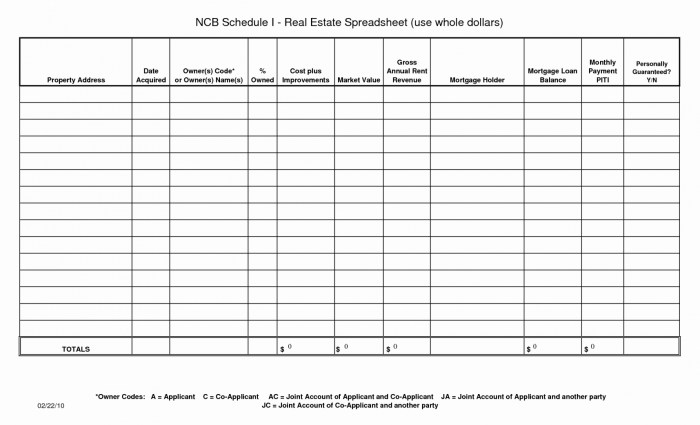Finding Affordable Monthly Rentals
Rent monthly house – Securing affordable housing in a competitive rental market requires strategic planning and thorough research. This section explores strategies for finding reasonably priced rental properties, considering various factors that influence rental costs and providing practical tips for successful searches.
Average Monthly Rent Prices Across Neighborhoods
Rental costs vary significantly depending on location within a major city. The following table provides a comparison of average monthly rents, square footage, and commute times for selected neighborhoods in a hypothetical city. These figures are for illustrative purposes and may not reflect current market conditions.
| Neighborhood | Average Rent | Average Sq Ft | Commute to City Center |
|---|---|---|---|
| Downtown | $2500 | 800 | 10 minutes |
| Uptown | $2000 | 900 | 15 minutes |
| Suburban A | $1800 | 1200 | 30 minutes |
| Suburban B | $1500 | 1500 | 45 minutes |
Factors Influencing Monthly Rental Costs
Several key factors contribute to the overall cost of monthly rent. Understanding these elements is crucial for making informed decisions.
- Location: Proximity to city centers, employment hubs, schools, and amenities significantly impacts rental prices. Desirable areas tend to command higher rents.
- Property Size: Larger properties with more bedrooms and bathrooms generally cost more than smaller units.
- Amenities: Features such as in-unit laundry, parking, a swimming pool, or a gym increase rental costs.
- Market Demand: High demand in a particular area leads to higher rental rates, while lower demand may result in more affordable options.
Strategies for Finding Discounted Rentals
Finding discounted or below-market-rate rentals requires diligence and proactive searching.
- Search during off-peak seasons: Rental prices may be lower during the off-season (typically winter months).
- Consider less desirable neighborhoods: Slightly less popular areas may offer lower rents while still being conveniently located.
- Negotiate with landlords: Don’t hesitate to negotiate the rent, especially if you are a long-term tenant or willing to sign a longer lease.
- Look for rental incentives: Landlords sometimes offer incentives like one month free rent to attract tenants.
Understanding Lease Agreements
A lease agreement is a legally binding contract outlining the terms and conditions of a rental arrangement. Careful review is essential before signing.
Key Clauses in a Residential Lease Agreement
Standard lease agreements typically include the following key clauses:
- Lease Term: The duration of the rental agreement.
- Rent Amount and Payment Schedule: The amount of rent and the due date.
- Security Deposit: The amount held by the landlord as security against damages.
- Late Fee Policy: Penalties for late rent payments.
- Pet Policy: Rules regarding pets, if allowed.
- Maintenance and Repairs: Responsibilities of landlord and tenant regarding repairs.
- Termination Clause: Conditions under which the lease can be terminated.
Landlord and Tenant Responsibilities Regarding Maintenance
Landlords are typically responsible for major repairs and maintenance of the property’s structure, while tenants are responsible for maintaining the cleanliness and preventing damage to the property.
Legal Implications of Breaking a Lease Agreement
Breaking a lease agreement prematurely can have legal and financial consequences, potentially including legal fees and loss of the security deposit. It is important to understand the terms of the lease before signing and to seek legal advice if necessary.
Navigating the Rental Application Process

Source: db-excel.com
The rental application process involves several steps to ensure a smooth transition into a new rental property. Preparation and attention to detail are crucial.
Step-by-Step Guide to Completing a Rental Application
The application process typically involves these steps:
- Finding potential rental properties.
- Submitting a completed application form.
- Providing necessary documentation (income verification, references, etc.).
- Undergoing a background and credit check.
- Attending an interview (if required).
- Signing the lease agreement.
Checklist for Rental Property Viewings, Rent monthly house
Bring the following items to a rental property viewing:
- A notepad and pen for taking notes.
- A measuring tape (to assess room sizes).
- A camera (to photograph any issues or features).
- A list of questions to ask the landlord or property manager.
Common Rental Application Interview Questions and Example Answers
Prepare for common interview questions, such as those related to your employment history, rental history, and reasons for moving. Provide concise and honest answers.
- Question: Why are you moving? Example Answer: “My current lease is ending, and I’m looking for a larger apartment to accommodate my growing family.”
- Question: What is your monthly income? Example Answer: (Provide verifiable income information).
- Question: Do you have any pets? Example Answer: (Answer honestly and provide details about your pet(s) if applicable).
Securing a Rental Property
Securing a rental property involves a competitive process. A well-crafted application and understanding of security deposits are essential.
Renting a house monthly offers flexibility, ideal for those unsure of long-term commitments. However, if you’re considering a more permanent solution, exploring the options available through rent and own houses might be beneficial. Ultimately, the best choice depends on your individual circumstances and financial goals, but understanding both rental and ownership paths is key to making an informed decision about your monthly housing needs.
Tips for Writing a Compelling Rental Application Letter

Source: fazwaz.com
Highlight your strengths as a prospective tenant in your application letter, emphasizing your stable income, responsible rental history, and commitment to maintaining the property.
Comparison of Different Types of Security Deposits
Security deposits can vary in terms of amount and purpose. Understanding the terms is crucial.
- Standard Security Deposit: Typically one or two months’ rent, covering potential damages.
- Last Month’s Rent: Paid upfront, covering the final month’s rent.
- Pet Deposit: Additional deposit to cover potential damages caused by pets.
Importance of Reviewing the Lease Agreement Carefully
Thoroughly review the lease agreement before signing, ensuring you understand all terms and conditions. Seek legal advice if necessary.
Maintaining a Rental Property
Regular maintenance is crucial for avoiding costly repairs and maintaining a positive relationship with your landlord.
Routine Maintenance Tasks for Tenants
Regularly performing these tasks can help prevent larger issues down the line.
| Task | Frequency |
|---|---|
| Cleaning gutters | Annually |
| Cleaning appliances | Monthly |
| Checking smoke detectors | Monthly |
| Checking for leaks | Weekly |
Reporting Maintenance Issues to a Landlord
Report maintenance issues promptly and professionally, using a preferred method of communication specified in the lease agreement.
Effective Communication with a Landlord About Maintenance Requests
Maintain clear and respectful communication, providing detailed descriptions of the issue and desired resolution.
Moving In and Out: Rent Monthly House
The moving process involves several steps to ensure a smooth transition. Careful planning and documentation are essential.
Checklist of Tasks Before Moving into a New Rental Property
Before moving in, complete tasks such as arranging utilities, changing your address, and conducting a thorough move-in inspection.
Conducting a Move-In Inspection and Documenting Existing Damage
Document any pre-existing damage with photos and a written report, signed by both the landlord and tenant.
Preparing a Rental Property for Move-Out
Follow the lease agreement’s guidelines for cleaning and repairs to ensure a successful move-out and the return of your security deposit.
Illustrative Examples of Rental Properties
Different rental properties cater to diverse needs and preferences. Understanding their features and suitability is key.
Types of Rental Properties: Features, Advantages, and Disadvantages

Source: fazwaz.com
Here are three examples of rental property types:
- Apartment:
- Features: Typically part of a larger building, offering shared amenities.
- Advantages: Convenience, often located in urban areas, lower maintenance.
- Disadvantages: Less privacy, potential noise issues, limited outdoor space.
- House:
- Features: Standalone building with private yard and more space.
- Advantages: Privacy, ample space, potential for customization.
- Disadvantages: Higher maintenance, typically more expensive.
- Townhouse:
- Features: Multi-level unit, often with a small yard or patio.
- Advantages: Balance of space and convenience, often in desirable locations.
- Disadvantages: Shared walls, potentially less privacy than a house.
Characteristics of a Desirable Rental Property
Location, safety, and amenities are crucial factors when choosing a rental property. Consider proximity to work, schools, and transportation, as well as neighborhood safety and the availability of desired amenities.
Furnished vs. Unfurnished Rental Properties
Furnished properties include furniture and appliances, while unfurnished properties do not. Furnished rentals are convenient but often more expensive.
Answers to Common Questions
What credit score is typically required to rent a house?
Credit score requirements vary by landlord and location, but a score above 650 is generally preferred. Landlords may also consider rental history and income.
Can I negotiate rent or lease terms?
Negotiating rent or lease terms is possible, especially in a buyer’s market or if you offer a longer lease term. Presenting a strong application and highlighting your responsible tenancy history can improve your negotiating position.
What are my rights as a tenant regarding repairs?
Your rights regarding repairs are typically Artikeld in your lease agreement and local tenant laws. Generally, landlords are responsible for addressing major repairs, while tenants may be responsible for minor maintenance.
What happens if I need to break my lease early?
Breaking a lease early typically results in financial penalties, often equivalent to several months’ rent. However, certain circumstances, such as a documented emergency, may allow for early termination without penalty. Consult your lease and local laws.
